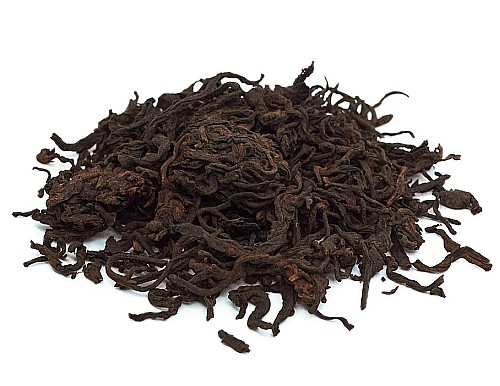2021 “Chocolate Noir II: A Long-Forgotten Stash” Craft Ripe Pu-erh Tea
This shou pu-erh I crafted from old Thai trees, averaging around 300 years in age—the very same material I always used for "Raspberry Pine." The fermentation was completed on December 5, 2021. And the tea then went off into aging to develop the right, well-rounded profile.
Over the following year, I checked in on it regularly, but wasn’t quite happy with the flavor. So I shelved the box higher up in our warehouse and, honestly, forgot about it. After 3.5 years of storage, it resurfaced during an inventory check—and now, I’m completely satisfied with the profile.
This tea unfolds gradually, requiring water as hot as you can get it, and a generous steeping time. We didn’t separate tea heads from loose leaves: the leaves infuse fast, while the heads maintain excellent steeping durability.
The dry aroma is classic—slightly salty, woody. Once rinsed, the scent transforms into soft, sweet woodiness, with notes of chocolate and raspberry jam.
The flavor profile is smooth, dense, and even: teak wood, a solid chocolate body, and a pleasant coffee-like bitterness finishing each sip.
This shou distinctly recalls our “Chocolate Noir”, which was produced later, from different material and slight adjustments in processing. Over years of aging, the raspberry-berry nuances have faded, replaced by a harmonious, rounded fusion of chocolate and wood. However, if your nose is keen, you might still detect faint traces of berry jam in its fragrance.
The aftertaste is lovely: like a childhood chocolate candy, with the gentlest touch of coffee.
As for the effect, this shou pu-erh brings a calm, soft, grounding feeling—perfect for a morning session.
Brewing hints
As usual, I use the softest, cleanest water I can find — around 10ppm. While ripe pu-erhs give you more freedom to experiment with water, this choice guarantees the described flavor profile.
In the photos, you’ll see a porcelain houhin. For profiling and tasting sessions, I like something that gives me full access to the aroma and tea base—so I reach for a heavier gaiwan, a Japanese houhin, or a shiboridashi. But for regular brewing, a bold Yixing teapot works best with this shou. And please, don’t rush your steeps.
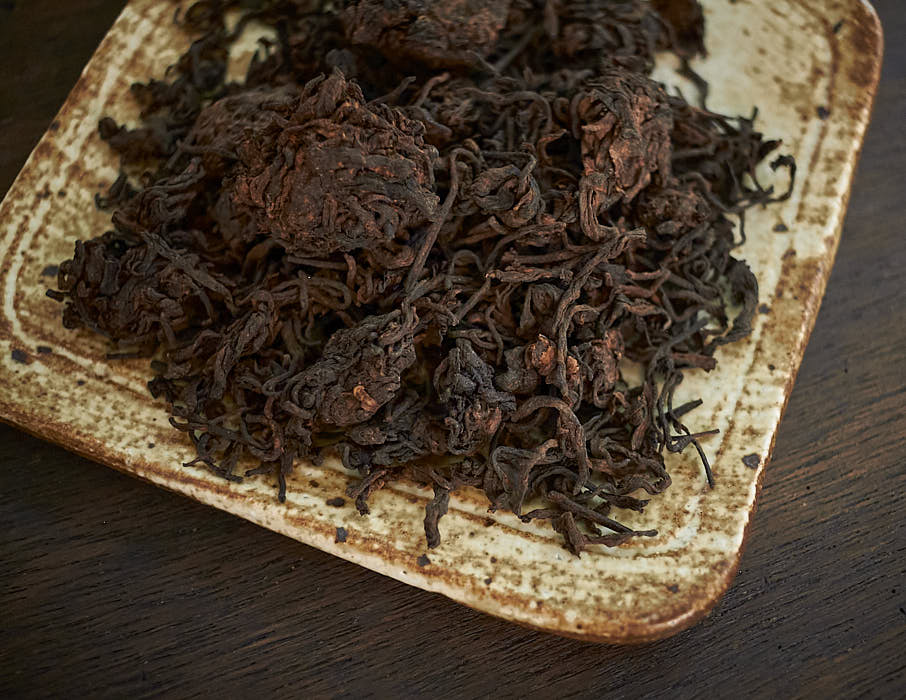
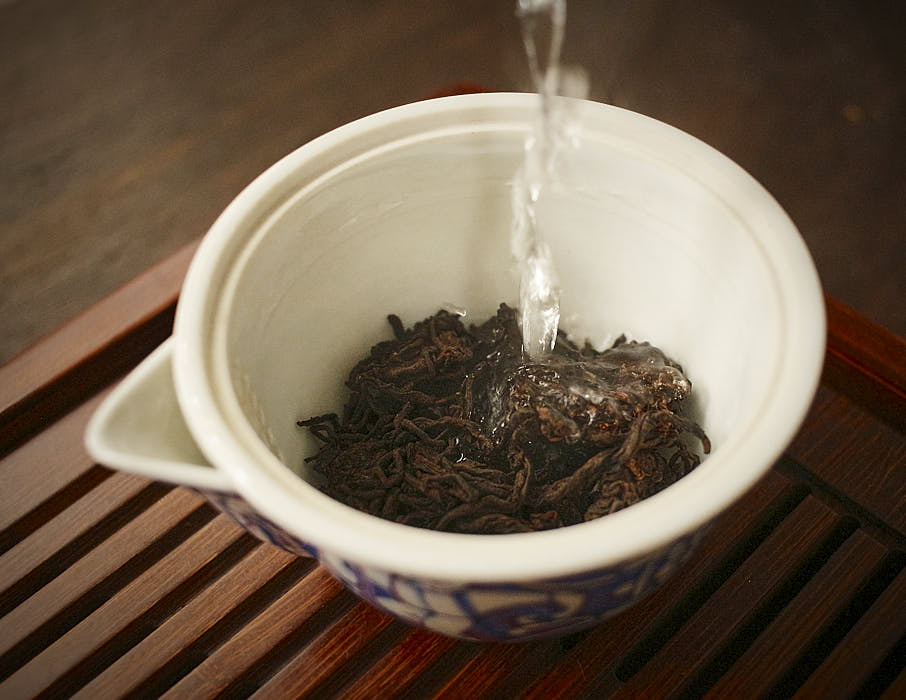
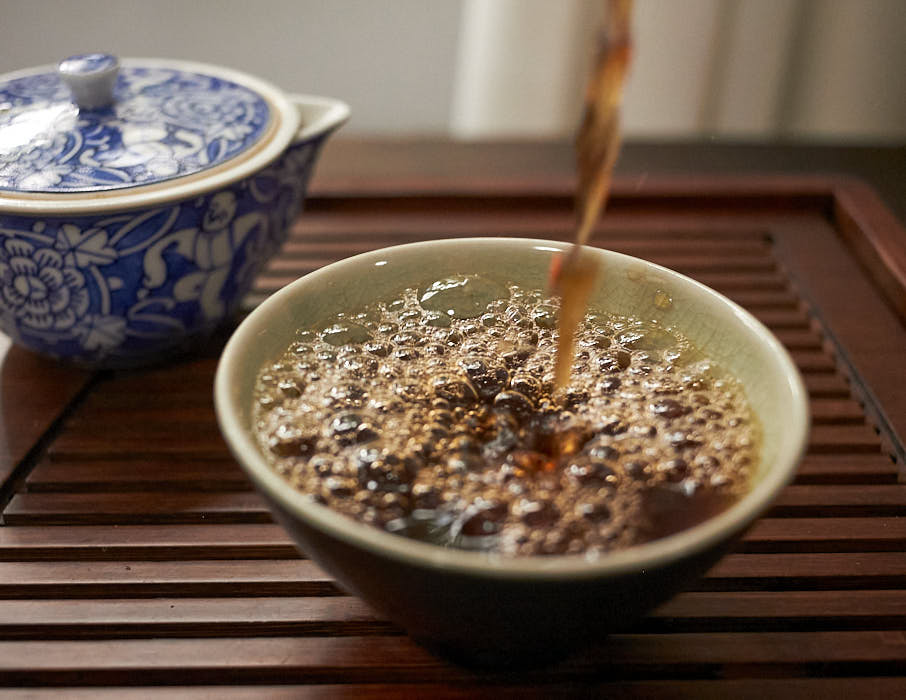
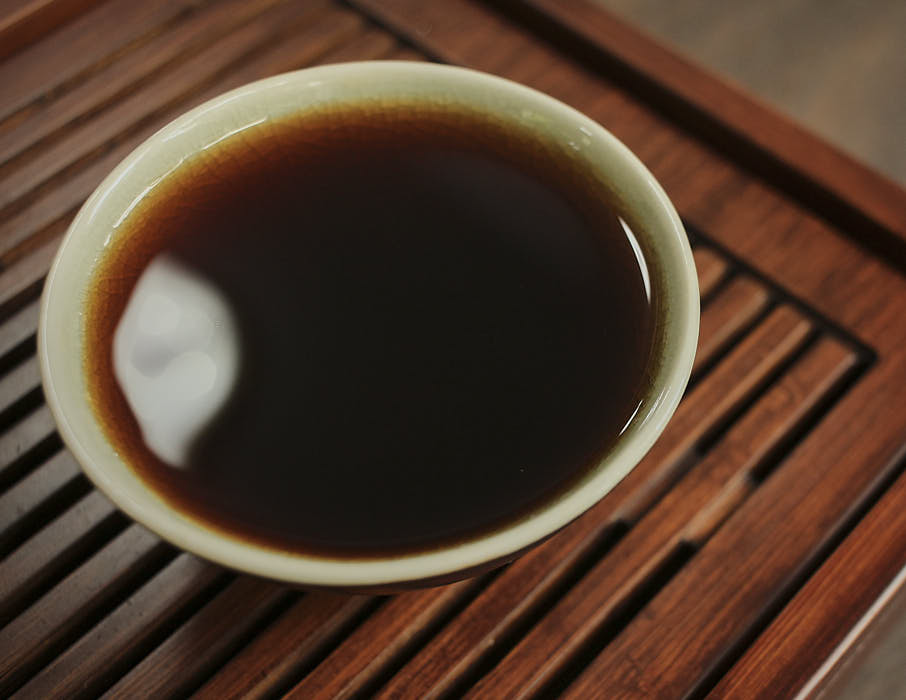
Reviews (5)
A very interesting tea. Date and cashew, a touch of dark-chocolate bitterness, and by the third or fourth infusion a creamy toffee note appears in the aroma, with red berries lingering in the background.
I love all of the artisanal ripe puerhs that Tea-Side makes, and this one does not disappoint. The tea lives up to its namesake with a dark chocolate flavor that is perfectly balanced by a raspberry finish. I need to order more before it sells out!
An amazing match between promises and reality: in this Pu-erh, you get a vivid pine-bark flavor and a clear, bright cocoa bitterness (not chocolate — chocolate is more complex, but pure cocoa, 100%).
Knowing the complex character of this tea, I chose a thick-walled ornamental teapot made of red dragon clay for brewing. It unraveled those tangled Thai leaves and tea heads! Helping in the process were long steeping times and the hot mountain valley water.
The tea is delicious — bitter, with a lingering sweetness reminiscent of raspberry jam.
The only thing that gives me pause is the price — $44 per 100 g. But as a unique experience, it’s highly recommended. Something you can and should drink occasionally.
A distinct raspberry jam note — very sweet, deep, and long-lasting. As the berry sweetness fades, it gives way to the gentlest milk chocolate that melts in the mouth, creating a true dessert-like sensation. Then the flavor begins to twist and turn, revealing sweet woody undertones reminiscent of fine sandalwood — soft and soothing. Amid this harmony, there’s a creamy hint that adds roundness and a velvety texture to the brew.
From time to time, surprising nuances of candied medicinal herbs appear in the taste — never bitter, just a subtle whisper of herbal tones wrapped in a sugary glaze.
This Shu is truly worth attention. It plays and flows, shifting from one note to the next, building a dynamic and engaging flavor profile. The tea impresses with its softness, incredible thickness, and depth, enveloping the palate completely. And the aftertaste isn’t just long — it’s layered and evolving, staying with you, inviting another sip. I absolutely enjoyed it.
As far as I understand, the batch is very limited, so if you’re on the fence — don’t hesitate, get it!
Reviewing an exceptional small-batch, shu pu'er, from Thailand, from Tea Side. I've written about the same general theme before, having tried related teas from them, but this is probably an even more exceptional version.
It's branded as "Chocolate Noir," dark chocolate, and it lives up to that branding, tasting a lot like that. To me it tasted a good bit like marshmallow too, herb-like in a form resembling that type of ingredient or candy, with a touch of light roasted coffee, and range that could be interpreted as vanilla. Complexity, intensity, balance, feel, and refinement were all exceptional. Really good and novel forms of shu can be like this, with this version pretty far up the scale.


